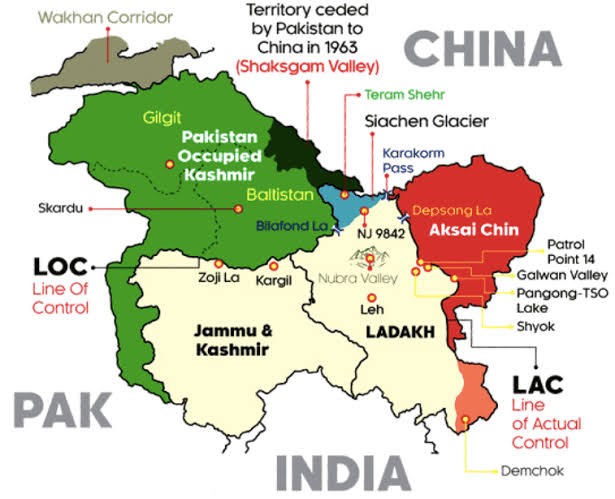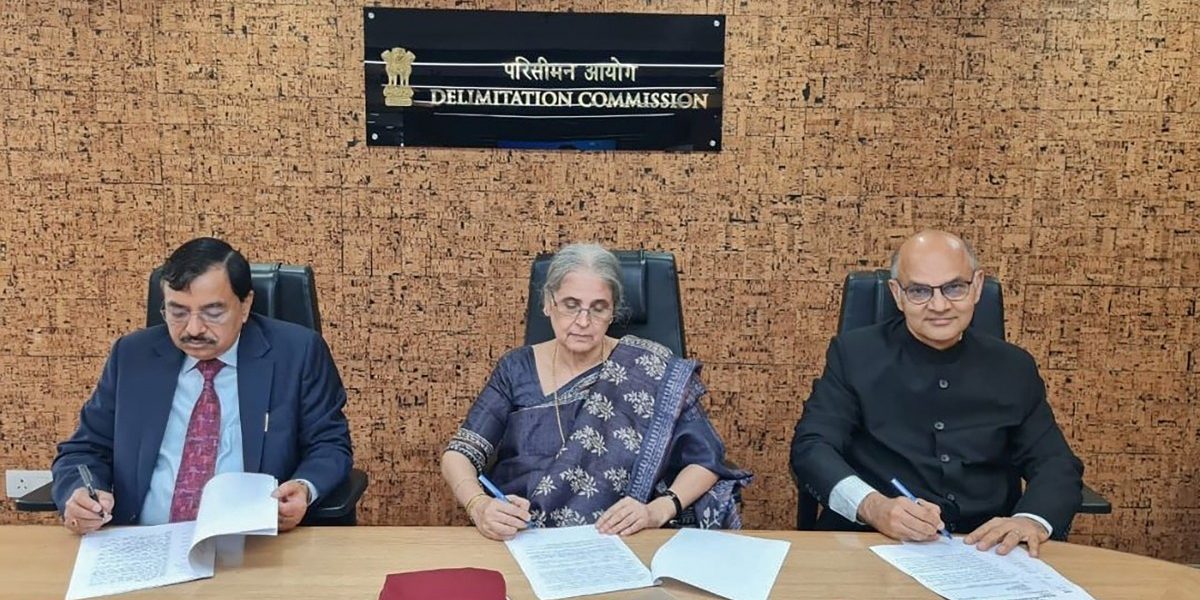The Supreme Court of India on the twelfth day of hearing petitions challenging the abrogation of Article 370 in 2019 granting special status to Jammu and Kashmir noted that the reorganisation of the state was not ‘one of a kind’ as was pointed out by Solicitor General Tushar Mehta.
The five judge bench of the Supreme Court comprising Chief Justice of India DY Chandrachud, Justices Sanjay Kishan Kaul, Sanjiv Khanna, BR Gavai, and Surya Kant noted that the case of Jammu and Kashmir bifurcation was no different than other Indian states that have undergone the same.
Solicitor General Tushar Mehta sought to draw apart Jammu and Kashmir during his arguments in the apex court. “If Gujarat or Madhya Pradesh was to be bifurcated, the parameters would be different. But when Jammu and Kashmir, considering its strategic importance, border state, history of terrorism, history of infiltration, history of outside influence- there would be some considerations. We share borders with at least four countries, all of which may not be friendly to put it mildly.” the LiveLaw report quoted SG Mehta.
To this Justice Kaul noted that India has many states that share border with neighbouring countries, Jammu and Kashmir was no exception. Justice Kaul cited Punjab and North east to draw comparison.
To this SG Mehta said, “The history also- how situation in Kashmir is developing, the deaths of civilians, the deaths of security forces, the number of attacks, stone pelting, the hartals, paralysing schools, hospitals, banks, businesses- everything. All of these are policy considerations.”
“Whenever a state reorganisation takes place, not only are their policy considerations as to why but also a blue print as to what the centre would do after the state is reorganised. How to bring youth in mainstream? How to employ, float schemes. There are several considerations. We will have to start with democratic local self governance so people participate in the internal institutions for their own good.”
At this point Chief Justice of India (CJI) DY Chandrachud sought clarification on the fact that once the power of reorganisation was conceded to the Union in relation to every Indian state, how was one to ensure that the power would not be misused.
This is when SG Mehta said that Jammu and Kashmir situation was ‘one of a kind’ and it would not happen again. Justice Kaul opposed this statement by conceding that several other Indian states had also been bifurcated or reorganised.
“It’s not one of its kind situation. We have seen the northern border Punjab- very difficult times. Similarly, some states in North East…I understood your argument that these border states are their own category. But how do you distinguish between Jammu and Kashmir with any other border states?” LiveLaw report quoted the Supreme Court judge.
Mehta responded that all the neighbouring countries are “not friendly” and there is a need to mainstream Jammu and Kashmir in view of its history and current situation — “stone pelting, strikes, deaths and terror attacks” — the Chief Justice weighed in.
Solicitor General Mehta contended that Jammu and Kashmir was a border state where one of India’s territories was occupied by Pakistan.
“I have given figures of deaths taking place every year. This is a problem faced by nation since decades which we are sorting out. There are several considerations – one of the considerations is how to bring youth in mainstream. What we see today is a result of blue print we have. After this decision, there were elections which took place of district development councils. There are 34000 elected people. Democracy is going to the grassroots. There are large number of schemes introduced. The youth which used to be employed by the interests not amenable to India- terror groups etc, are gainfully employed. There is a blue print and I’ll show that blue print.” Mehta said, as reported by Livelaw.
On Tuesday the Indian government told Supreme Court that the’Union territory’ status of Jammu and Kashmir was ‘not permanant’. The CJI and the apex court sought a ‘roadmap’ to restoring electoral democracy in the region of Jammu and Kashmir.


